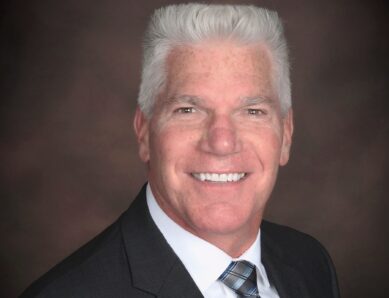As a civilian, I always imagined that military leadership might be a little different from leadership elsewhere. There’s the complex hierarchy, after all, and the strong chain of command.
Then I talked to Captain Mark Brouker, a former commanding officer at one of the largest naval hospitals in the world. He told me that the fundamentals of good leadership are the same the world over, in every conceivable setup.
Leadership Fundamentals
“At the end of the day, it’s all about trust,” he says. Whether you run a hospital, a community group, or a multinational corporation – the best way to build trust is to show that you care.
In his acclaimed new book, “Lessons from the Navy: How to Earn Trust, Lead Teams, and Achieve Organizational Excellence,” Mark Brouker outlines six critical leadership behaviors that may challenge preconceptions about the armed forces.
Compassion is the secret weapon in any leader’s arsenal, Mark Brouker believes. When you truly care about your people – get to know them and try to help – strong bonds of trust develop. With trust comes loyalty and a willingness to go the extra mile. And perhaps most importantly, a greater sense of well-being.
Intimidating Leaders
Near the start of Brouker’s book, he makes the point that leadership always comes with some level of intimidation, and this can hinder building trust.
“By definition, leaders are kind of intimidating, because they dictate whether you have a job, frankly,” says Brouker. “They dictate how much pay you’re going to get. They have an enormous amount of power over you. And I think most leaders don’t appreciate that level of natural intimidation.”
The opposite of intimidation is being approachable, he says, and if we don’t work on this proactively, we’ll “default to intimidation” and create a culture of fear.
Listen Well
Brouker’s book is full of tips that nurture approachability, and many of them depend on that most underused of leadership skills – listening.
“Listening is the ultimate way to show respect, because you’re conveying: ‘I value what you have to say. I may not agree, we may not go in that direction. But I’m going to listen, I’m going to analyze it, and I’m going to value what you have to say.’ It’s extremely powerful,” he reflects.
He offers a memorable tool that anyone can use, leader or not. Whoever you’re with, think of the acronym WAIT, which is short for “Why am I talking?”
You may be saying something important. In which case, fine. Or you may be missing an opportunity to listen instead, with all of its related benefits – like understanding your co-workers and building trust.
One place you can listen is wherever your people work. Brouker advocates simply walking around. Or, in the time of COVID-19, checking in by phone and video call.
Never forget, “You’re trying to become approachable,” he says. So smile, thank people for what they do, ask how you can help, and, of course, listen.
But displaying compassion is not without potential pitfalls. Some leaders might worry they come across as weak. Others may find themselves overpromising, telling people that everything’s going to be OK when serious issues need attention.
Optimism Vs Realism
I asked Brouker how he marries optimism and realism. A positive outlook is good for morale, but glossing over problems hardly builds trust. He answered with a story about a big naval hospital in Bethesda, Maryland, where he was giving a talk on the value of optimism.
“Someone said, ‘The parking here is a mess. You can’t find a parking spot… How do you put a smile on your face on that?'” he recalls.
“And I said, ‘Well, here’s what I would say: welcome onboard the naval hospital Bethesda. We have a great team here. We work with the army. The Harvard president comes here. The congressmen and women come here. Great case mix complexity. The bad news is parking’s terrible! You’re going to have to get here early. Put on a good pair of shoes, get an umbrella, and call it a little physical fitness for you.’ So, address the elephant in the room, but don’t let it hijack the conversation.”
We can be realistic and optimistic, Brouker believes, if we listen to people’s problems and engage with solutions. It’s respectful, it helps to build trust, and ultimately, it shows that we care.
Listen to Our Interview With Mark Brouker
Discover fascinating insights from some of the world’s leading business figures with our monthly Expert Interviews.
Mind Tools Premium and Corporate members can listen to the full 30-minute interview with Mark Brouker in the Mind Tools Club.
If you’re not a Mind Tools member, you can join the Mind Tools Club and gain access to our 2,400+ resources, including 200+ Expert Interviews. For corporate licensing, ask for a demo with one of our team.




Comments
Austine says
4 years agoSir, I really appreciate your guide lines. Am a military man and I live in a country whereby leaders tend to be more dictatorial we believe that as a leader you issue orders for your subordinates to comply. Generally we don't have a working atmosphere of trust but fear instead around here. Thanks.